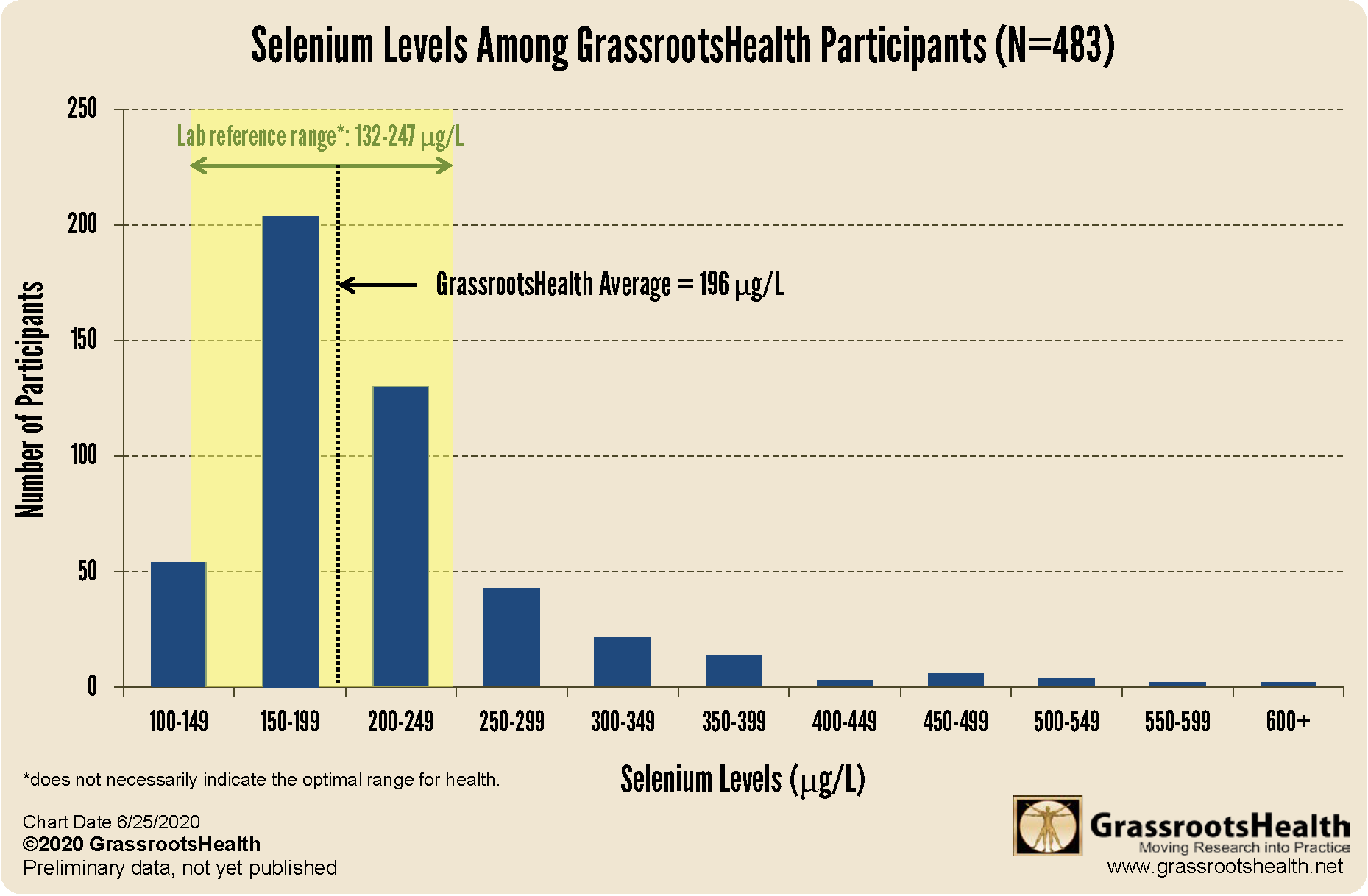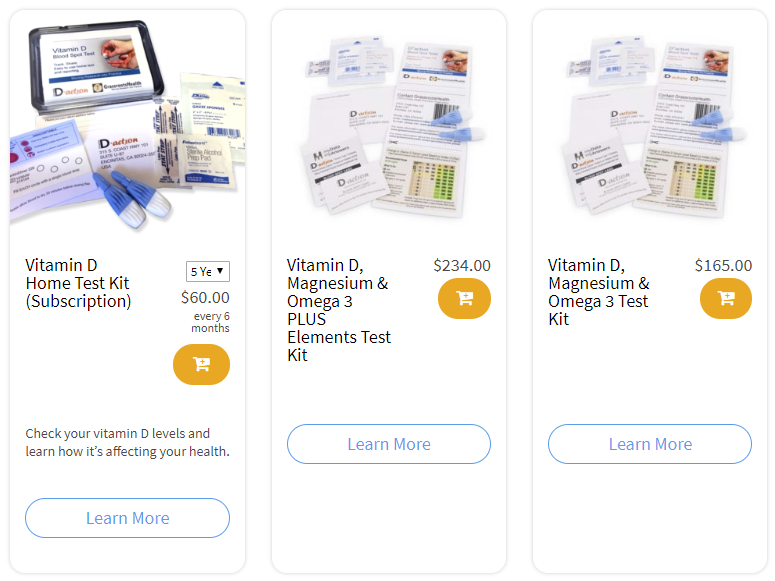Published on June 30, 2020
Selenium is an essential nutrient with antioxidant properties that plays a key role in thyroid function, reproduction, and DNA synthesis. Studies have found an association between higher selenium status and a lower risk of cancer, cognitive decline, and cardiovascular disease.
 Selenium is a mineral present naturally in water and some foods including Brazil nuts, walnuts, grains, beef, poultry, and some seafood. Selenium is also available as a dietary supplement. Click here to find out more about selenium.
Selenium is a mineral present naturally in water and some foods including Brazil nuts, walnuts, grains, beef, poultry, and some seafood. Selenium is also available as a dietary supplement. Click here to find out more about selenium.
In the spring of 2019, GrassrootsHealth started offering a selenium test with the Elements Panel, which includes testing your vitamin D level along with essential elements magnesium, selenium, zinc, copper, and copper:zinc ratio, and toxic heavy metals cadmium, lead, and mercury. This test reflects both free selenium in the blood and selenium as a component of selenoproteins (proteins containing selenium). Since heavy metals bind to selenium and reduce its bioavailability, this dried blood spot test is particularly useful for determining if enough selenium is present to counteract these heavy metals in the body.
Selenium Levels Among GrassrootsHealth Participants
Among the 483 participants who tested their selenium levels, the average level was 196 μg/L which falls within the lab reference range (132-247 μg/L); this reference range only indicates the range of typical results found in the population the lab serves but does not necessarily indicate the optimal range for health.
While higher selenium status has been associated with reduced disease risk, the optimal range for health is not known. Excess selenium can cause nausea, diarrhea, neurological symptoms, and heart problems so it’s important to identify this optimal range. Your ongoing participation in this project will contribute greatly to knowing what levels are optimal for health. We will continue to track this data and report any results back to you.
Ensure you are getting enough selenium and other essential elements!
Do you know your selenium, magnesium, zinc, copper, and copper:zinc ratio levels? Make sure you know the status of these important elements and others with the Magnesium Plus Elements blood spot panel, and see if changes in your diet and supplementation could improve your element status and health outcomes. To know if you are getting enough, make sure you test today!
Are You Getting Enough Vitamin D to Help Yourself?
We’re in a time of great crisis that could be greatly affected by making sure you and everyone you know has a serum level of at least 40 ng/ml. Help us help you.
Do you know what your vitamin D level is? Be sure to test today to find out, and take steps to keep it within a target of 40-60 ng/ml or 100-150 nmol/L! Give your immune system the nutrients it needs to support a healthy you and protect yourself from unnecessary diseases.
GrassrootsHealth Nutrient Research Institute is preparing to do a Community RCT with the use of our myData-myAnswers nutrient health system that over 15,000 people are already using for their health. We will demonstrate how one can use the Nutrient Research Model established by Dr. Robert Heaney to establish the effect of vitamin D serum levels of at least 40 ng/ml (100 nmol/L) on risk reduction with different ethnicities in the population. Please let us know if you’re interested in helping sponsor this project.
CLICK HERE for updates and new information about the project.
Through GrassrootsHealth Nutrient Research Institute, you can also test your essential elements magnesium, copper, zinc and selenium, toxins such as lead, mercury and cadmium, as well as your omega-3 levels, inflammation levels and thyroid stimulating hormone (TSH) level. Find out your levels today! Log on to the test selection page (click the link below) to get your tests and see for yourself if your levels can be improved.
Make sure you track your results before and after, about every 6 months!
Click Here to Access the Test Page
How can I track my nutrient intake and levels over time?
To help you track your supplement use and nutrient levels, GrassrootsHealth has created the Personal Health Nutrient Decision System called
For each specific supplement, you can track what days you take it, how much, and many other details. This will help you know your true supplemental intake and what patterns of use work for you to reach and maintain optimum nutrient levels. Check it out today!









